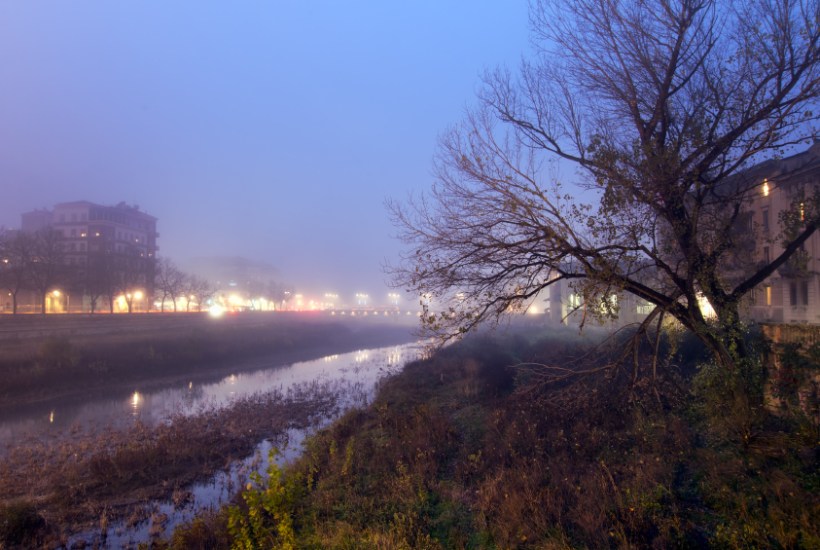Valerio Varesi, the Turin-born crime writer, displays a typically Italian interest (I would say) in conspiracy theory. The Italian term dietrologia, which translates, not very happily, as ‘behindology’, presumes that shadowy consortia are everywhere manipulating political scandals. A Woman Much Missed, the fourth of the excellent Commissario Soneri thrillers to be translated into English, unfolds in present-day Parma amid rumours of Mafioso-style machinations.
As always, Varesi’s lugubrious, cigar-puffing detective Soneri retains a degree of disabused integrity and is a trencherman, moreover, as he seeks out only the best buffalo-milk mozzarella and bottles of Bonarda red. Under it all, though, lies a deepening corruption, where justice may not prevail. In vivid prose the author evokes a sinister, fog-bound Parma of dripping gutters, dank back alleys and out-at-elbow pizza parlours.
An elderly guesthouse owner, Ghitta Tagliavini, has had her heart removed and diced with a pork-butcher’s knife. Why? On the blood-puddled floor the murder victim lies with her eyes wide open. She may or may not have been involved in Italy’s kickback and bribery culture, known as la bustarella, ‘the little envelope’. In the course of his sleuthing, Soneri finds that the Pensione Tagliavini had served as a brothel for a variety of gangland cuties and their associates. Not one shred of forensic evidence — no fibres, no fingerprints — is initially found to implicate any of them in the murder. Instead, the clues remain stubbornly confused, as they so often do in Italian detective novels, or gialli (so called because of their canary-coloured dust-jackets).
Commissario Soneri, who is distinguished by his annoying Verdi opera ringtone, is a composite drawn from Varesi’s impressively wide reading of gialli. In his mournful yet dignified presence one can find traces of Wilkie Collins’s Sergeant Cuff (the enthusiastic cultivator of wild roses in The Moonstone), as well as Simenon’s dogged, Calvados-imbibing Maigret, who is likewise given to bouts of luxurious eating (‘half a wild rabbit in sweet-and-sour sauce’) combined with morose cogitations on man’s corruptibility.
The thriller, expertly translated by the Glasgow-based italianista Joseph Farrell, serves as a corrective, among other things, to those ghastly ‘Toujours Tuscany’ travel memoirs with their overtures to Florentine sunsets and village pasta-making. Varesi, 57, compellingly reveals an authentic darkness at the heart of modern Italy. Little envelope? What little envelope?
Got something to add? Join the discussion and comment below.
Get 10 issues for just $10
Subscribe to The Spectator Australia today for the next 10 magazine issues, plus full online access, for just $10.
Available from the Spectator Bookshop, £12.49. Tel: 08430 600
You might disagree with half of it, but you’ll enjoy reading all of it. Try your first month for free, then just $2 a week for the remainder of your first year.














Comments
Don't miss out
Join the conversation with other Spectator Australia readers. Subscribe to leave a comment.
SUBSCRIBEAlready a subscriber? Log in